Grilling boneless skinless chicken breast to perfection requires knowing the right cook time and techniques. This guide provides exact grill times based on thickness, heat levels, and cooking methods to ensure juicy, perfectly cooked chicken every time.
The Perfect Grill Time for Boneless Skinless Chicken Breast
| Thickness | Heat Level | Direct Heat Time | Internal Temp Needed |
|---|---|---|---|
| ½ inch | Medium-high | 5–6 minutes per side | 165°F (74°C) |
| ¾ inch | Medium-high | 6–7 minutes per side | 165°F (74°C) |
| 1 inch | Medium-low | 8–10 minutes per side | 165°F (74°C) |
Tips to Avoid Dry Chicken
- Brine it first: A simple saltwater brine (or one with herbs and citrus) helps lock in moisture.
- Use a meat thermometer: Guesswork is risky—use a digital one to check for doneness without slicing into the meat.
- Rest after grilling: Letting it rest for 5–10 minutes allows juices to redistribute.
Smoker vs. Gas vs. Charcoal
If you're experimenting with different setups:
- Gas grill: Fast, consistent, easy temperature control.
- Charcoal grill: Adds smoky flavor; requires more attention to airflow and fuel management.
- Electric smoker: Ideal for low-and-slow cooking with deep smoke penetration.
Spice Storage & Flavor-Boosting Hacks
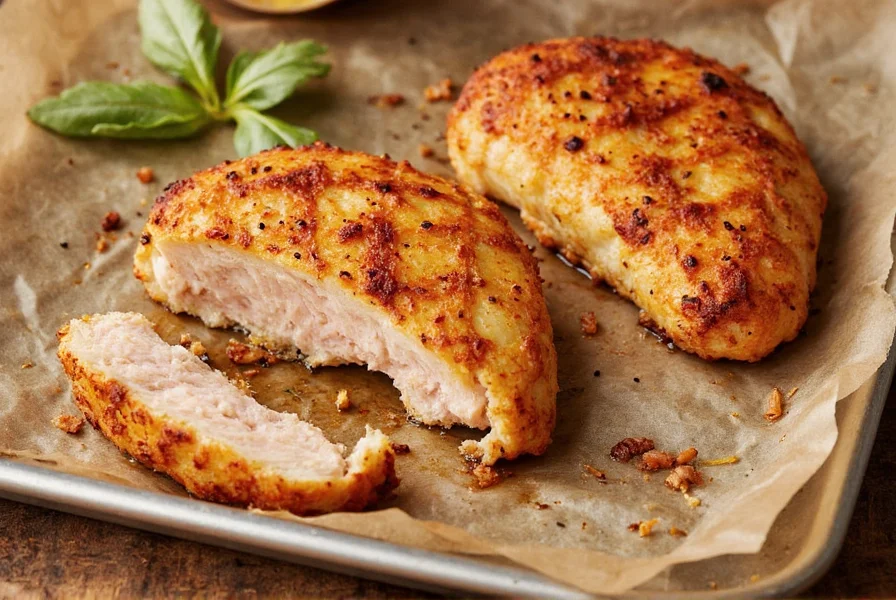
| Spice Type | Shelf Life |
|---|---|
| Ground spices | 2–3 years |
| Whole spices | 3–5 years |
| Herb blends | 1–2 years |
| Fresh herbs | 1 week refrigerated / up to 6 months frozen |
Better Spice Storage = Better Flavor
- Away from heat and light: Keep spices in a cool, dark cabinet—not above the stove.
- Air-tight containers: Mason jars with rubber lids or vacuum-sealed spice tins are ideal.
- Label and date: Mark when you opened each spice so you know when to replace them.
- Buy in small batches: Especially for rarely used spices like sumac or za'atar.
Flavor-Boosting Tips
- Toasting whole spices: Enhances depth of flavor. Toast cumin seeds or coriander in a dry pan before grinding.
- Layer your seasonings: Rub half before grilling, sprinkle more after resting for layered taste.
- Add acid: Squeeze lemon or lime over chicken post-grill to brighten flavors.
Tools of the Trade: Must-Have Grilling Essentials
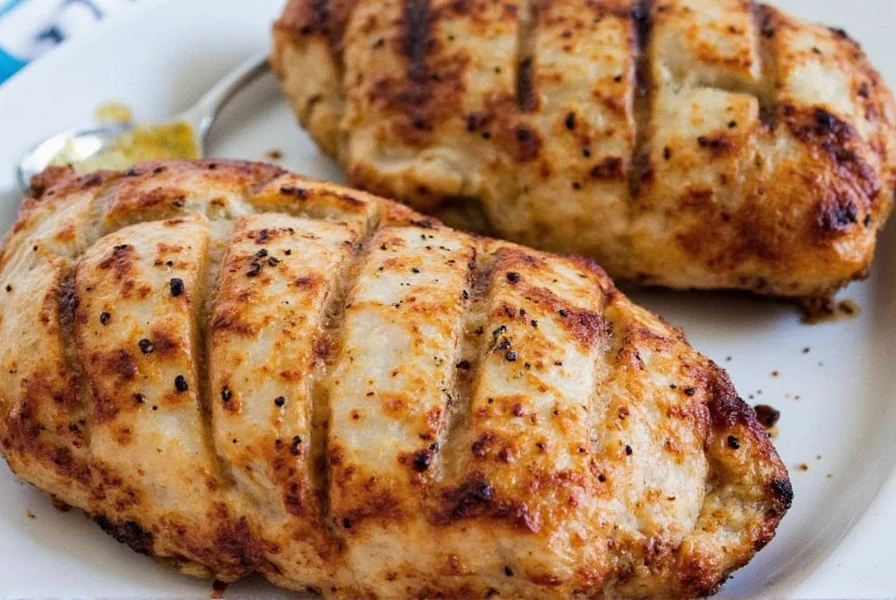
Top Tools You Can't Live Without
- Meat thermometer: Digital instant-read models give accurate readings in seconds.
- Long-handled tongs: For flipping without burning your fingers.
- Cast iron skillet: Great for searing chicken breasts indoors or outdoors.
- Spice shaker set: Evenly apply seasoning without overloading your chicken.
- Aluminum foil or silicone grill mats: Prevent sticking and simplify cleanup.
| Product | Description | Best For |
|---|---|---|
| ThermoPro TP03 Digital Thermometer | Fast, accurate readings with auto-shutoff and calibration option. | Checking internal temp of chicken during grilling |
| OXO Good Grips Spice Shakers | Ergonomic design, adjustable holes for custom spice flow. | Even seasoning application |
| Weber Premium Grill Brush | Stainless steel bristles and durable handle for cleaning hot grates. | Post-grill grate maintenance |
Buying Guide: Choosing Your Chicken and Spices
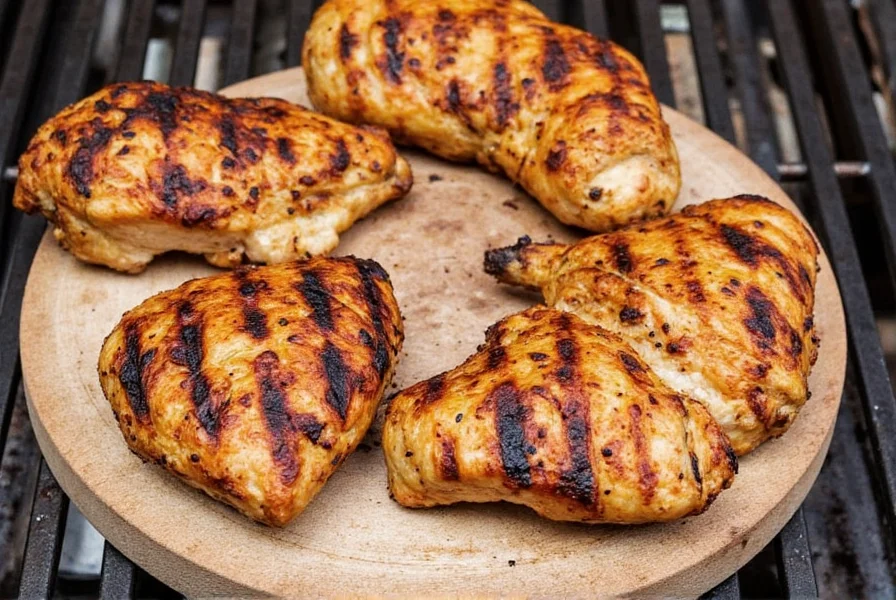
Selecting Chicken Breasts
- Pink, firm texture: Avoid discolored or slimy chicken.
- No added solution: Some packages contain sodium-laden solutions—read labels carefully.
- Free-range or organic options: May offer better flavor and ethical sourcing.
Choosing Quality Spices
- Vibrant color: Faded colors mean diminished potency.
- Strong aroma: If they smell faint, they'll taste faint too.
- Minimal additives: Look for single-ingredient spices (no fillers).
- Reputable brands: McCormick, Simply Organic, and Badia are known for consistency.
| Brand | Features | Best For |
|---|---|---|
| McCormick Gourmet Collection | Premium quality, clearly labeled origin information. | Chefs and home cooks seeking consistency |
| Simply Organic | Organic, fair trade certified, eco-friendly packaging. | Eco-conscious consumers |
| La Flor | Mexican-style spices with bold flavor profiles. | Tacos, fajitas, Latin-inspired dishes |
Visual Comparison Table: Spice Storage Containers
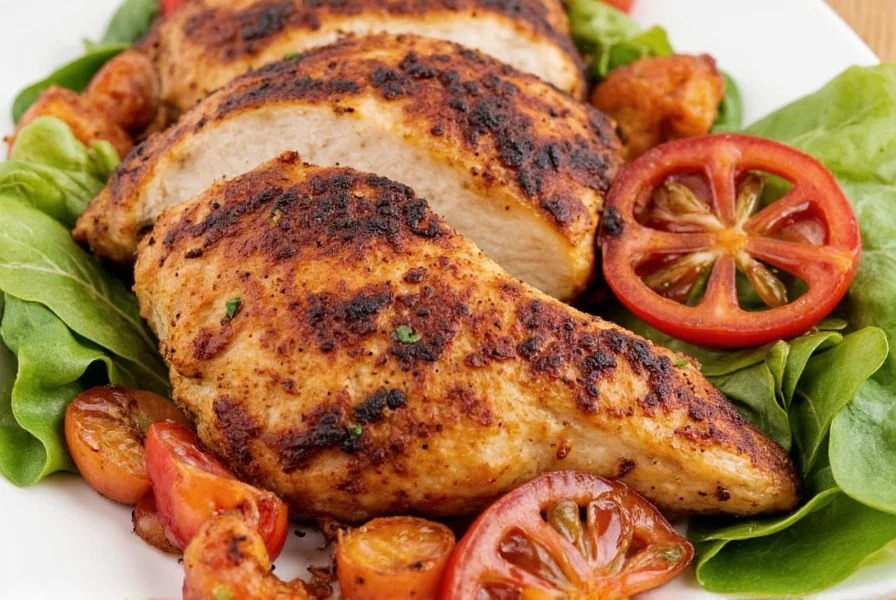
| Type | Pros | Cons | Best For |
|---|---|---|---|
| Glass Jars | Durable, air-tight, see-through labels | Heavy, may break | Home kitchens, serious chefs |
| Plastic Tubs | Lightweight, stackable, affordable | Can absorb odors, less durable | Casual cooks, budget shoppers |
| Vacuum-Sealed Tins | Maximum freshness, space-efficient | Expensive, require sealing device | Professional kitchens, spice collectors |
| Drawer Systems | Space-saving, organized layout | Costly, limited portability | Modern kitchens with cabinetry upgrades |
Frequently Asked Questions About Grilled Chicken & Spices
Q: How long should I grill a 1-inch thick boneless skinless chicken breast?
A: For a 1-inch thick chicken breast, grill over medium-low heat for 8-10 minutes per side, or until it reaches an internal temperature of 165°F (74°C). Thicker cuts require lower heat and longer cooking time to prevent the outside from burning before the inside is cooked.
Q: What's the ideal internal temperature for grilled chicken breast?
A: The USDA recommends cooking chicken to an internal temperature of 165°F (74°C). Use a digital meat thermometer inserted into the thickest part of the breast (without touching bone, though this is boneless) to check for doneness. Remove the chicken from the grill when it reaches 160°F as it will continue to cook while resting.
Q: How can I tell if my grilled chicken breast is done without a thermometer?
A: While a thermometer is highly recommended, you can check for doneness by cutting into the thickest part of the chicken—it should be opaque with no pink areas. The juices should run clear, not pink or red. However, this method is less accurate and causes the chicken to lose moisture, potentially resulting in dry meat.
Q: How do I prevent chicken from sticking to the grill?
A: Clean the grates thoroughly, preheat them until they're sizzling, and oil both the grates and the chicken before placing it down.
Q: Should I marinate chicken before grilling?
A: Marinating adds flavor and moisture. Aim for 30 minutes to 24 hours for best results. Acidic marinades (like lemon or vinegar) shouldn't exceed 2 hours as they can start to "cook" the chicken and alter its texture.
Q: What's the best way to avoid dry grilled chicken breast?
A: To prevent dry chicken: 1) Brine it first (30-60 minutes in saltwater solution), 2) Don't overcook (remove at 160°F and let rest), 3) Pound thicker breasts to even thickness, 4) Use moderate heat rather than high heat, and 5) Let it rest 5-10 minutes before slicing.
Conclusion: Grill Like a Pro, Season Like a Chef
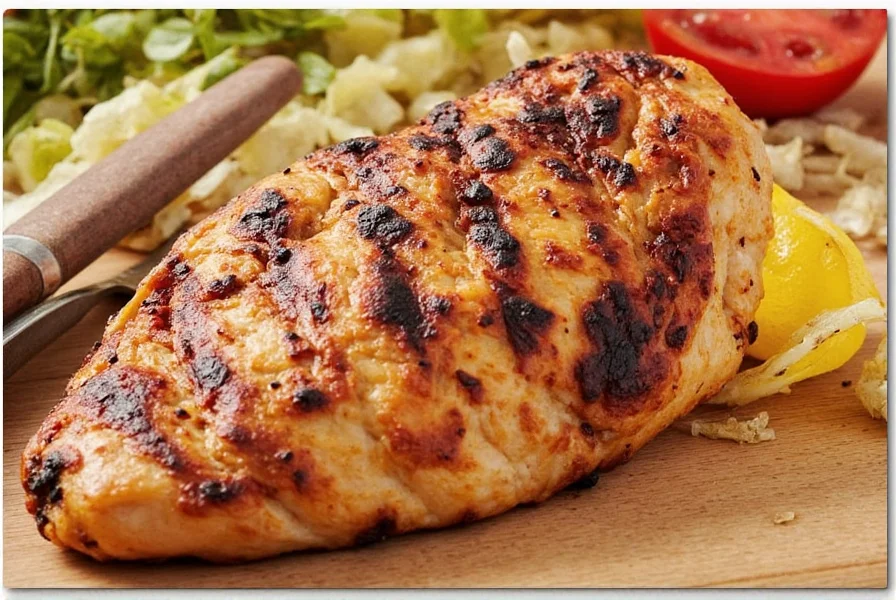
Mastering grill time for boneless skinless chicken breast requires precision and technique. By following these evidence-based guidelines—using a meat thermometer, proper resting time, and quality ingredients—you'll consistently achieve juicy, flavorful results.
Remember: Food safety is paramount. Always verify internal temperature reaches 165°F (74°C) per USDA guidelines. Proper spice storage and tool selection further elevate your grilling experience from ordinary to exceptional.

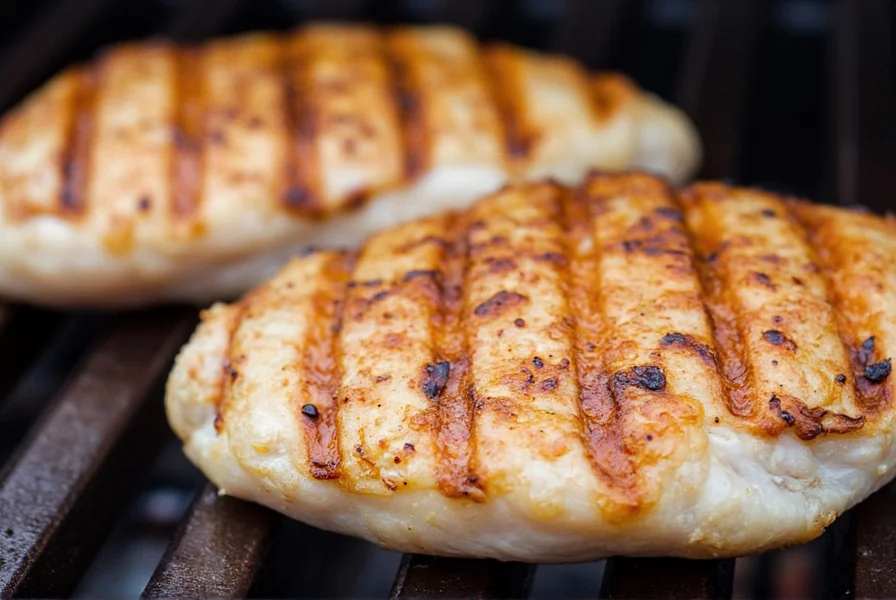









 浙公网安备
33010002000092号
浙公网安备
33010002000092号 浙B2-20120091-4
浙B2-20120091-4